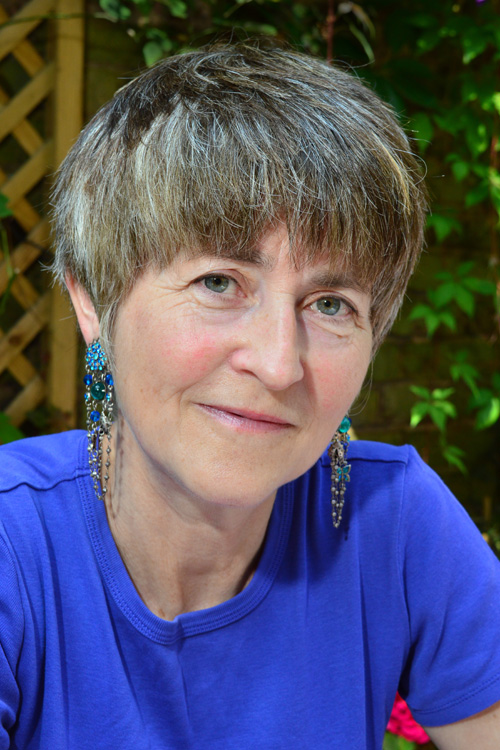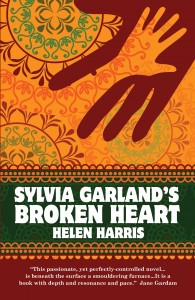 This post was contributed by Helen Harris (MA Oxon), associate lecturer in creative writing in Birkbeck’s Department of English and Humanities. Her new novel, Sylvia Garland’s Broken Heart will be published by Halban Publishers on 13 November.
This post was contributed by Helen Harris (MA Oxon), associate lecturer in creative writing in Birkbeck’s Department of English and Humanities. Her new novel, Sylvia Garland’s Broken Heart will be published by Halban Publishers on 13 November.
Creative writing lecturers are used to the scepticism – occasionally tinged with downright hostility – with which some people react when they reveal their profession. “Do you really believe you can teach someone to write?” Well yes, personally I believe that with patience and imagination it is possible to teach anyone to do anything.
What is more disturbing is when a successful writer who also teaches creative writing loudly announces – as Hanif Kureishi did earlier this year – that creative writing courses are “a waste of time.” Cue uproar. Even as he spoke, creative writing courses were proliferating in universities up and down the country.
What is perhaps even more puzzling is that this scepticism seems to be shared by a number of students who enrol on creative writing modules. Some of them insist to me, for example, that the marking of their coursework must be subjective, that their friends thought it was brilliant and if I have not given it the high mark it so obviously deserves, that is just because my taste does not coincide with their friends’. Reminding them that all the coursework is second marked has little effect; creative writing is an imprecise individualistic business they seem to believe, certainly not an exact science with its own measures and its own criteria.
I could not walk into the classroom, certainly not at 7.30pm on a wet and windy November evening, if I didn’t believe I was teaching my students anything worthwhile. But what do I think I am actually teaching them?
For the past three years I have been delivering an introductory creative writing module which is part of Birkbeck’s BA English: “Writing Fiction”. My students are second to fourth year undergraduates. I begin the module by outlining what I believe I can – and what I can’t – teach them. The “can’t” list is actually quite short. I can’t teach them what to write; the story comes from them. Similarly, just as they all speak in their own voice with their own accent and vocabulary and mannerisms, the voice in their writing will be their voice. I tell them that within a few weeks I will be able to identify which student has written which piece of coursework even without names attached.
What I believe I can teach them is essentially craft. I run through the list of topics we cover in the first term – character, beginnings, plot, dialogue, point of view – and I explain that I am here to instruct them primarily in technique, not in how to write but how to write better. It is, I sum up cheerily, not much different from plumbing. (My all-time favourite student feedback form read roughly as follows: “I was a bit taken aback when Helen said at the beginning she would be teaching us to write in the same way that you might be taught how to assemble an IKEA bookcase. But as an approach I found it worked.”)
Of course it’s not quite like assembling an IKEA bookcase (something of which I am incidentally incapable.) But my students – and I expect most creative writing students – finish their course with a deeper understanding of what makes good fiction and how it works. Some of them lament that the way they read has changed; they fear they have lost the simple pleasure of enjoying a ‘good read’ without watching carefully to see what the writer is doing and how he/she is doing it. I tell them that this is in fact an encouraging sign of their progress.
 The last session of the year was payback time. My new novel Sylvia Garland’s Broken Heart will be published in November. Over the year, we have spent many evenings workshopping their writing. For our final class I put my money where my mouth is. I emailed them the first chapter of Sylvia Garland’s Broken Heart and asked them for critical feedback in our evening workshop. They set about the task with evident relish. As I listened to their feedback – “Is this really Jeremy’s point of view here or is it actually Sylvia’s?” “You told us not to include too much descriptive writing but you’ve got loads” – I could tell how much they had learnt over the year about writing fiction. And although I may have winced a couple of times, I am confident some of them will go on to write their own novels one day.
The last session of the year was payback time. My new novel Sylvia Garland’s Broken Heart will be published in November. Over the year, we have spent many evenings workshopping their writing. For our final class I put my money where my mouth is. I emailed them the first chapter of Sylvia Garland’s Broken Heart and asked them for critical feedback in our evening workshop. They set about the task with evident relish. As I listened to their feedback – “Is this really Jeremy’s point of view here or is it actually Sylvia’s?” “You told us not to include too much descriptive writing but you’ve got loads” – I could tell how much they had learnt over the year about writing fiction. And although I may have winced a couple of times, I am confident some of them will go on to write their own novels one day.
